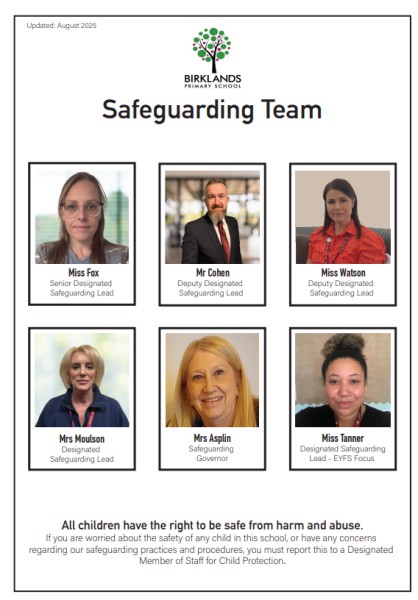Safeguarding
Meet Our Safeguarding Team

The Senior Designated Safeguarding Lead is Miss Joanne Fox (Acting Deputy Head) - jfox@birklandsschool.co.uk
Her Designated Safeguarding Staff are;
- Miss Amy Watson (Acting Head Teacher)
- Miss Jasmin Tanner (EYFS Lead)
- Mrs Tina Moulson (After School)
The Governor with named responsibility for Safeguarding is Jayne Aspin.
All school staff have a level of training appropriate to their role.
What is Safeguarding and promoting the welfare of children defined as?
- protecting children from maltreatment;
- preventing impairment of children’s mental and physical health or development;
- ensuring that children grow up in circumstances consistent with the provision of safe and effective care; and
- taking action to enable all children to have the best outcomes.
What is "Child Protection"?
Child protection is a part of safeguarding and promoting welfare. It refers to the activity that is undertaken to protect specific children who are suffering, or are likely to suffer, significant harm.
What is "Early Help"?
Birklands Primary School recognises that providing "Early Help" is more effective in promoting the welfare of children than reacting later. "Early Help" means providing support as soon as a problem emerges, at any point in a child’s life.
Birklands Primary School Safeguarding Policy
The policy for 2025-2025 can be found under the policy section.
